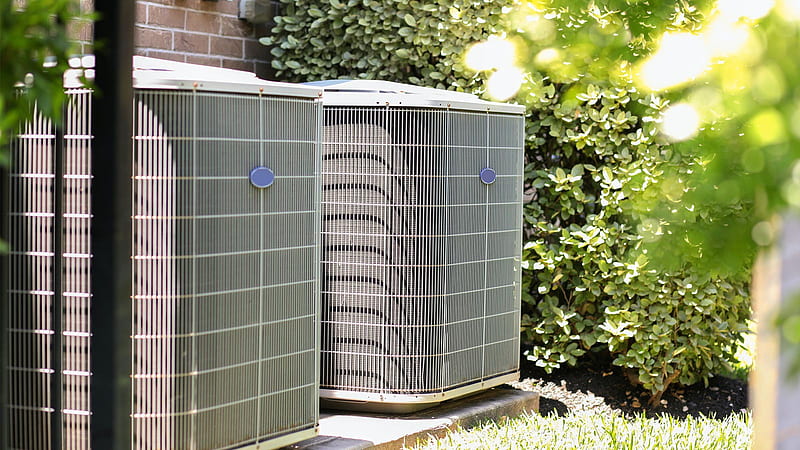Mastering the Climate: Your Ultimate Guide to Heating and Air Conditioning Bliss
Mastering the Climate: Your Ultimate Guide to Heating and Air Conditioning Bliss
Blog Article

When it comes to creating a comfortable living environment, mastering your heating and air conditioning system is essential. Whether you find yourself shivering during the winter months or sweating in the summer heat, understanding how these systems work can transform your home into a haven of bliss. With an array of options available, it's crucial to know what suits your needs best and how to maintain efficiency.
Heating and air conditioning play a pivotal role in regulating indoor climate, impacting everything from your health to your energy bills. By familiarizing yourself with the basics, including types of systems, energy efficiency ratings, and maintenance tips, you can ensure that your home remains cozy in the cold and refreshing in the heat. Dive into this ultimate guide to discover the keys to achieving heating and air conditioning perfection in your space.
Understanding HVAC Systems
Heating, ventilation, and air conditioning, commonly referred to as HVAC, is essential for maintaining comfortable indoor environments. HVAC systems work by regulating the temperature, humidity, and air quality within homes and commercial buildings. A well-designed HVAC system enhances comfort by distributing air evenly and efficiently throughout all rooms, ensuring that no area is left too hot or too cold.
The components of an HVAC system typically include a heating unit, a cooling unit, ductwork, and ventilation systems. The heating unit can be a furnace or a heat pump that warms the air, while the cooling unit, often an air conditioner, cools the air during warmer months. Ductwork is responsible for transporting air to and from the HVAC units, while ventilation systems help maintain good air quality by exhausting stale air and introducing fresh air.
To choose the right HVAC system for your needs, it is important to consider factors such as the size of your space, your local climate, and your budget. Efficient systems are designed to reduce energy consumption while maximizing comfort, so investing in a quality HVAC system can lead to savings on energy bills in the long run. Regular maintenance is also vital to ensure the system operates smoothly and effectively, providing a comfortable environment year-round.
Energy Efficiency Tips
To maximize the efficiency of your heating and air conditioning systems, one of the simplest actions you can take is to ensure proper maintenance. Regularly change or clean your air filters, as dirty filters can restrict airflow and reduce system performance. Schedule annual inspections with a qualified technician to check for issues and perform necessary repairs, ensuring that your system operates at peak efficiency throughout the year.
Air conditioning residential solutions
Another effective way to enhance energy efficiency is by properly sealing your home. Make sure windows and doors are tightly sealed to prevent drafts. Consider adding weather stripping or caulking where needed. Insulating your home, particularly in areas like the attic, can also help retain heat during winter and keep your space cool in summer, reducing the load on your heating and air conditioning systems.
Finally, take advantage of programmable thermostats. These devices allow you to set specific temperatures for different times of the day, which can significantly reduce energy consumption. By automatically adjusting the temperature based on your schedule, you can avoid unnecessary heating and cooling when you are not home, leading to lower utility bills and enhanced comfort.
Maintenance and Troubleshooting
Regular maintenance is essential for keeping your heating and air conditioning systems running efficiently and effectively. Start by changing or cleaning filters every one to three months, as dirty filters can restrict airflow and reduce system efficiency. Additionally, ensure that the exterior and interior units are free of debris, dirt, and obstructions. Schedule professional inspections at least once a year to check for any potential issues that could lead to costly repairs down the line.
When troubleshooting common problems, familiarize yourself with the signs of inefficiency. If your system is not heating or cooling as expected, check the thermostat settings to ensure they are correct. Listen for strange noises coming from the unit; these can indicate mechanical issues that may require professional attention. Warm air from the vents during cooling months or cool air during heating can signify a refrigerant leak or a malfunctioning compressor.
In case of system breakdowns, having a few troubleshooting tips can save you time and stress. Resetting the system by turning off the power for a few minutes can sometimes resolve minor issues. Always check circuit breakers to ensure they have not tripped. If problems persist, documenting the symptoms and reaching out to a qualified technician can help diagnose the issue effectively, ensuring your heating and air conditioning systems are back to optimal performance quickly.
Report this page